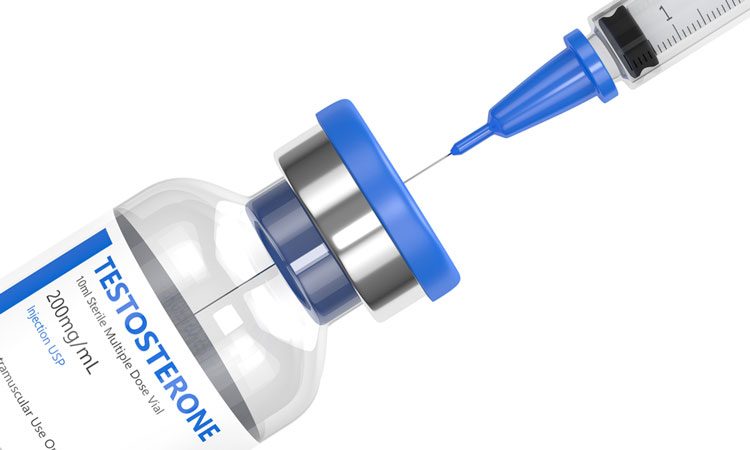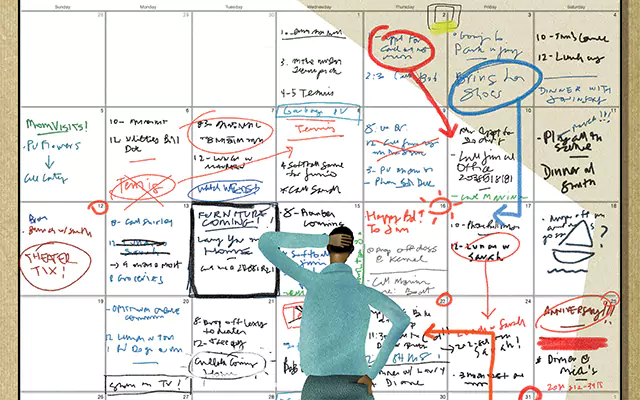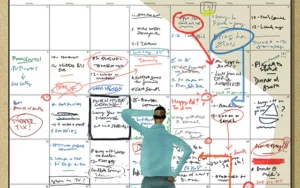Men suffering from low testosterone may benefit from TRT, which can refuel energy and boost libido. However, it’s important to note that this treatment is not a quick fix. It can take months before you start seeing results.
The most common type of TRT is a gel that is applied to the skin. This type of gel is convenient to use, but it can cause irritation. Contact Trt San Diego now!

Testosterone is a hormone that promotes male sexual characteristics, including the growth of facial and body hair and muscle. It also helps with spermatogenesis and regulates the growth of bone density and strength. It is produced mainly in the testes, although it is also synthesized in smaller amounts by the adrenal glands and thecal cells of the ovaries during pregnancy. It is associated with libido, aggression, dominance and courtship display in males. In addition, it helps to maintain normal mood and normal cognition. It may play a role in the development of the prostate and ovaries. It also helps to prevent osteoporosis in men and women by stimulating bone formation.
Testosterone, which is an androgen, is produced by the Leydig cells in the testicles. It is converted to dihydrotestosterone in the prostate and to estradiol (a type of estrogen) in the ovaries. This explains why testosterone levels in men decrease naturally with age, a process known as andropause.
In addition to being the primary sex hormone, testosterone is anabolic, which means it stimulates protein production and muscle growth. In adults, it is important for normal libido and sexual function, and it also has several non-sex-related functions, such as regulating the metabolism of fat, cholesterol, and proteins. It is also a natural steroid that helps the body respond to stress and injury by accelerating tissue repair and the formation of new blood vessels.
A lack of testosterone can cause many symptoms, such as a loss of libido and an inability to get a good night’s sleep. It can also reduce a man’s muscle mass, which can lead to decreased strength and endurance. Testosterone levels are normally tested with a simple blood test. It can be done at home with a kit, but your doctor may also recommend that you have this test performed in his office or clinic.
Various conditions can lower natural testosterone levels, including medical problems such as diabetes, kidney or liver disease, HIV/AIDS and certain cancer treatments. Some drugs, especially those used to treat pain or depression, can also affect testosterone. Testosterone replacement therapy can help raise low levels. It can be administered in the form of creams, gels, patches and injections.
It is responsible for a man’s libido
Testosterone is responsible for many of the changes that occur in a man’s body during puberty, including deepening of the voice, growth of body hair, and enlargement of the penis. It also plays a role in the development of muscle mass and production of sperm. Low testosterone can lead to a number of health problems, including decreased sexual desire and infertility. Testosterone therapy can help improve these symptoms.
While most people associate testosterone with libido, it isn’t the only hormone that impacts a man’s sex drive. Estrogens and progesterone also play a role in libido. In fact, there is anecdotal evidence that men with low testosterone experience improved libido when they start taking estrogen supplements. Testosterone is converted into another form of estrogen, called estradiol, which is an important factor in sexual function and desire. It is also responsible for the development of sperm and other male organs.
It is not uncommon for men to experience low libido as they age. This can be due to several factors, including hormonal imbalances, stress, and fatigue. However, a man’s libido is highly individual and can vary depending on his circumstances. Therefore, it is important to consider all of the factors that affect a man’s libido before starting a testosterone replacement therapy program.
In addition to low libido, some of the most common symptoms of low testosterone are fatigue, mood issues, loss of muscle mass and bone density, and difficulty concentrating and remembering things. Testosterone replacement therapy can increase a man’s libido, improve his quality of life, and help him feel more like himself.
Testosterone replacement therapy is an effective treatment for a variety of conditions that may cause low libido, including hypogonadism. It can improve sexual desire and reduce the risk of erectile dysfunction. It is crucial to work with a physician who specializes in this area and is experienced with treating patients with low libido. In addition, it is important to have frequent PSA (prostate specific antigen) monitoring when beginning TRT. A significant change in PSA levels could indicate the presence of pre-existing prostate cancer, which would require a temporary cessation of TRT.
It is responsible for a man’s muscle mass
Testosterone is a crucial male hormone, responsible for a wide range of physiological processes, including muscle mass and bone density, sperm production, energy levels, mood, and more. Its connection to a man’s strength and libido is well-known, but it has many other health benefits that are less commonly recognized.
Men who undergo TRT have reported a variety of beneficial effects, including increased lean body mass and enhanced strength. TRT has also been shown to increase muscle protein synthesis, which is essential for promoting muscle growth and preventing sarcopenia in older men. These effects are a result of testosterone’s direct action on muscle cells.
Testosterone has a wide range of other health effects, including improved erectile function and greater vitality. It has been shown to increase the number of red blood cells, which improves oxygen delivery and helps the heart pump more efficiently. It can also help reduce cardiovascular risk factors, such as high cholesterol and blood pressure. Testosterone is available as an oral medication or injectable therapy. Both options are safe and effective, but injections tend to have a more immediate effect.
TRT is also associated with a decrease in fat and an increase in lean body mass, which can improve mobility. It is also associated with reduced inflammatory biomarkers, such as C-reactive protein and triglycerides. However, there are some concerns about a possible increase in the size of the prostate gland in older men with TRT. However, this increase does not appear to be as severe as the enlargement that occurs with age in men without TRT. Routine lab work and frequent medication adjustments can mitigate these concerns.
Supplement companies make testosterone sound like a miracle hormone that can turn anyone into a superhero, but the truth is that it has far more subtle effects than most people realize. The best way to find out whether or not TRT will be beneficial for you is to have a thorough physical examination and blood tests, which is what Gameday Men’s Health offers. These tests will determine the cause of your symptoms and if TRT is right for you.
It is responsible for a man’s bone density
Testosterone is responsible for a number of different functions in the body, including bone health. It regulates bone formation and resorption and also helps to increase muscle mass. Low levels of testosterone can affect bone health, increasing the risk of osteoporosis and hip fractures in men. Hypogonadism can result in reduced production of estrogen and has a direct negative impact on bone density, similar to the effect of aging on women. Testosterone and estrogen are both important in maintaining bone density, although the role of each hormone is different. Estrogen promotes the formation of bone, while testosterone prevents the breakdown of bone. Testosterone has a more important impact on the quality of the bones than it does on muscle mass, but the two have similar functions.
Osteopenia, osteoporosis and hip fractures are associated with significant morbidity in older men. This is particularly true for patients with low testosterone, who are more likely to develop osteoporosis and have higher rates of hip fractures than those without the condition. Moreover, osteoporosis and hip fractures can lead to decreased quality of life and increased mortality in these patients.
Despite the lack of large-scale trials, several studies have shown that testosterone replacement therapy (TRT) can improve BMD in hypogonadal men. These studies show that TU, testosterone undecanoate, or TE can significantly increase BMD in the lumbar spine and femoral neck, but not in the total hip bone. Moreover, a combination of TU and TE can even further enhance BMD in these patients.
However, some doctors are hesitant to prescribe TRT because of its association with prostate cancer. Nonetheless, the current evidence suggests that TRT does not cause prostate cancer, and it may be beneficial for hypogonadal men who are at high risk of the disease. It is recommended that these patients undergo frequent PSA monitoring. A rise in PSA levels above 1 ng/mL within 3-6 months should prompt consideration of discontinuation of TRT.
Several studies have reported that a decrease in bone density can lead to a reduction in a man’s libido and a loss of muscle. The best treatment option for these issues is to take a natural supplement that contains testosterone and other essential nutrients. It is also important to stay physically active and consume a healthy diet.


